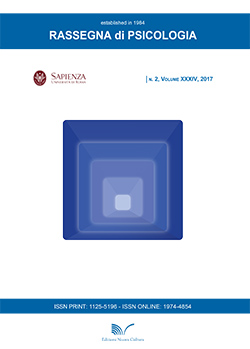Foreign Language Effect (FLE): definition, examples, explanatory hypotheses and suggestions for future research
DOI:
https://doi.org/10.13133/1974-4854/16669Keywords:
foreign language effect (FLE), native language, foreign language, decision makingAbstract
The term foreign language indicates a non native language, learned in a classroom context, outside the normal environment in which usually it is used by a mother tongue. The Foreign Language Effect (FLE) is the phenomenon of the activation of systematic reasoning processes by thinking in a foreign language, and such processes are different from those that take place by using the mother tongue. In the last years an increasing amount of scientific literature showed that making a decision in a foreign language can significantly influence formal logic rules, strongly modifying well-known phenomena as framing effect or loss aversion bias, and having an impact on the way in which people think about moral dilemmas. The aim of this literature review, through a punctual analysis of more recent published studies, is to provide a general overview on the FLE phenomenon, on its characteristics, main explanatory hypotheses and some possible future investigations in this field.Downloads
Published
2017-06-30
Issue
Section
Articles
License
Copyright (c) 2017 Riccardo Circi, Giuseppe Curcio

This work is licensed under a Creative Commons Attribution 4.0 International License.

